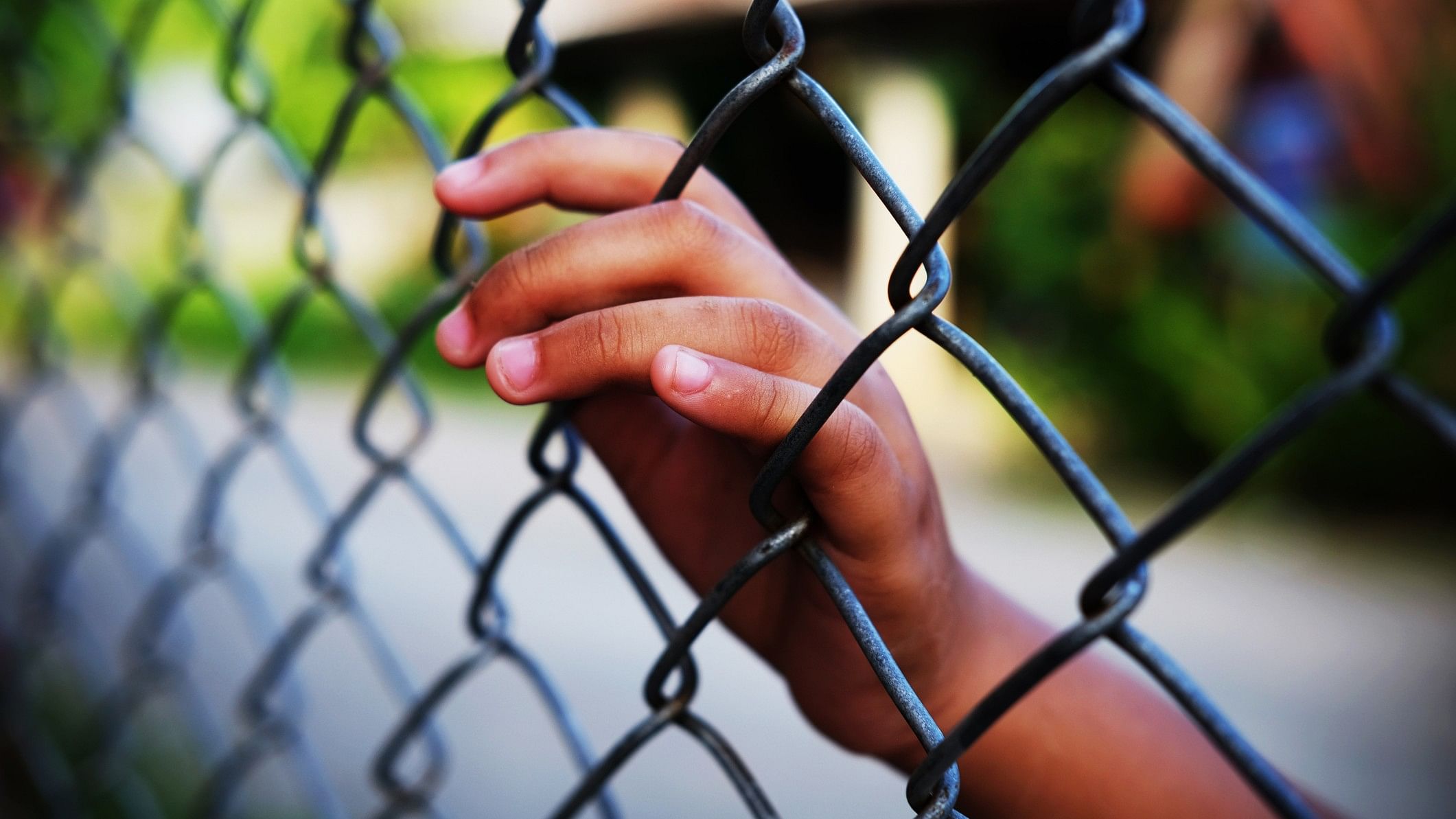
Image showing a child holing a fence. For representational purposes.
Credit: iStock Photo
New Delhi: To rehabilitate and reintegrate the thousands of children in conflict with law, the Centre is launching a new portal to monitor in realtime the interventions and work of all concerned stakeholders.
Apart from the District Child Protection Units, the Legal Aid Services in every state, the State Child Protection Societies (SCPS), State Commissions for Protection of Child Rights (SCPCRs) have been asked to log their activities when dealing with a juvenile delinquent, apart from the National Commission for the Protection of Child Rights (NCPCR), and the Union Ministry of Women and Child Development (MWCD).
The site, Baal Swaraj, has been launched by the NCPCR, and in a communication to all principal secretaries of states on Thursday, the child rights body has asked for the management of data to track the progress of each child in conflict with law. In the letter, the NCPCR has called the platform “a comprehensive digital interface” which will enable the realtime monitoring of these children to ensure timely interventions.
“The platform is designed to guarantee that during the rehabilitation and reintegration process, CCLs (children in conflict with law) receive their basic legal entitlements, including education, vocational training, psychological support and free legal aid, thereby reducing the likelihood of recidivism,” the letter stated.
District Child Protection Units will ensure the maintenance of data regarding these children, which will be analysed quarterly, leading to annual reports which the Commission will submit to the Parliament to maintain transparency and accountability in the management of these children.
Every year, on an average, over 30,000 cases by juveniles are recorded. In 2023, minors committed 30,555 crimes, with Delhi recording the highest juvenile crime rate in India. In a recent case in NCR, two children left a children’s home and were part of a murder case.
Priyank Kanungo, NCPCR chairperson, said that the need for such a system was felt when he encountered a child in Rajasthan who was under the age of 14 and had been arrested twice. “He was arrested for stealing from the local PDS system, and lives with a grandmother who is nearly blind and an alcoholic father. His mother is no more. He had managed to get bail, but was arrested the second time because he was offered no legal aid, and so, could not turn up in court as part of the bail condition,” Kanungo said.
In another case, a child who had stolen Rs 265 was in jail for 11 months and had not even seen the inside of a court while the register showed that he had appeared multiple times, said Kanungo. “We are making criminals like they are portrayed in Hindi films. If we do not help reform them, we will end up making more criminals,” he said.